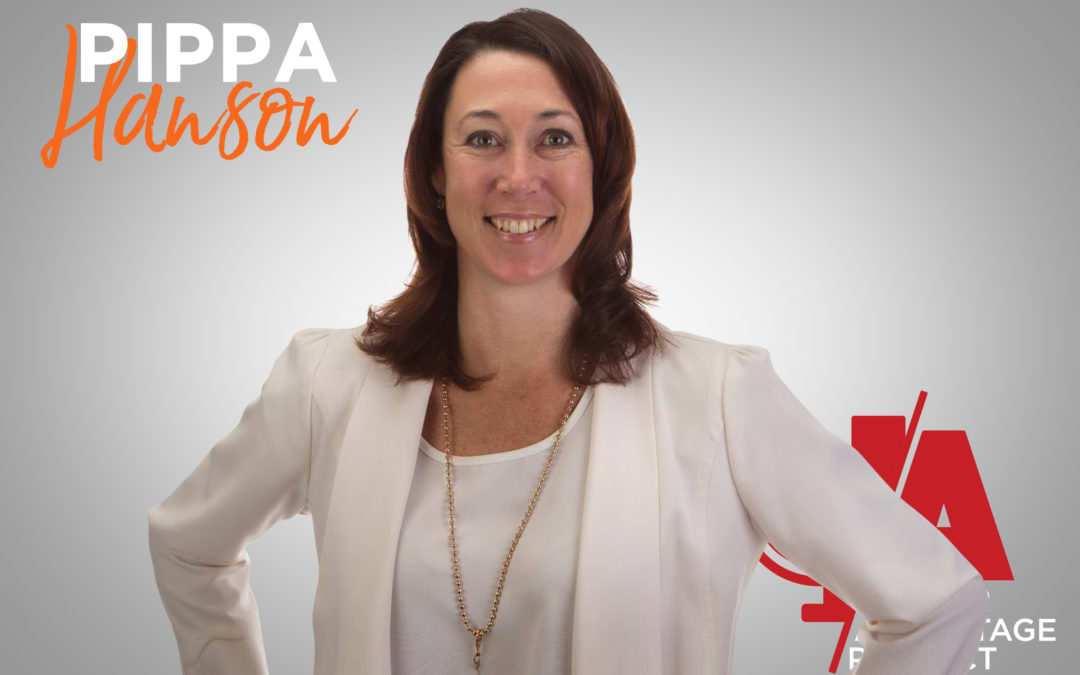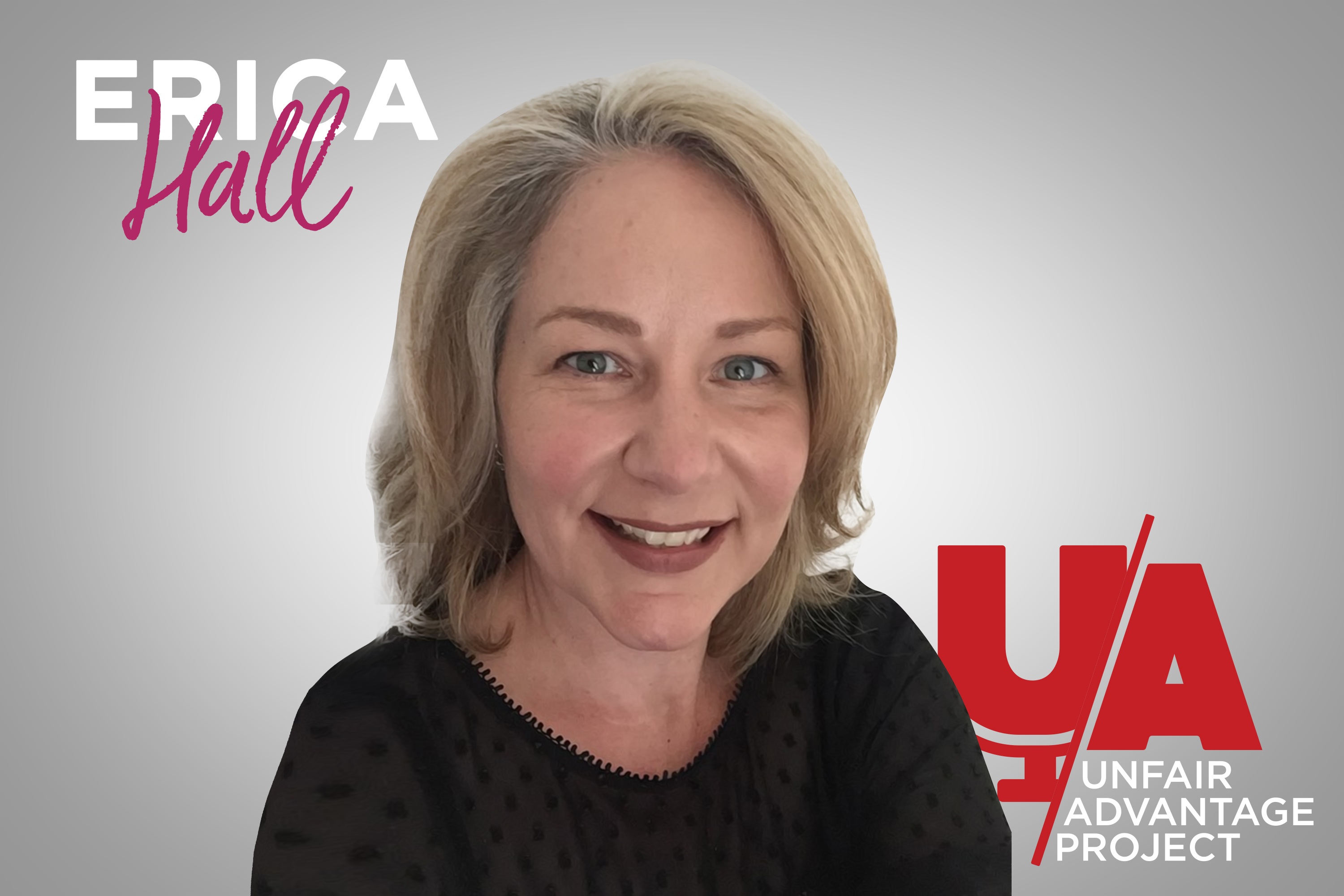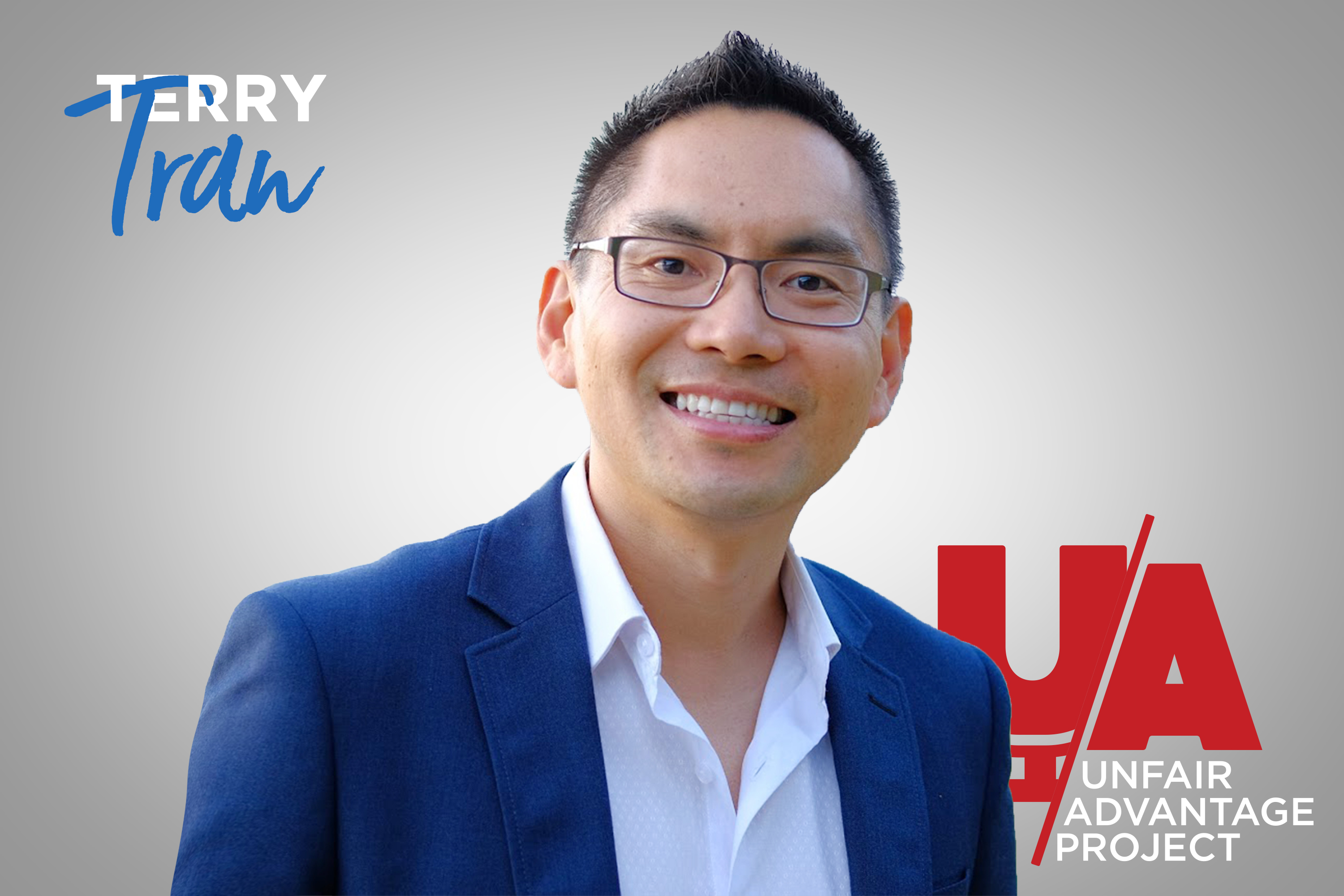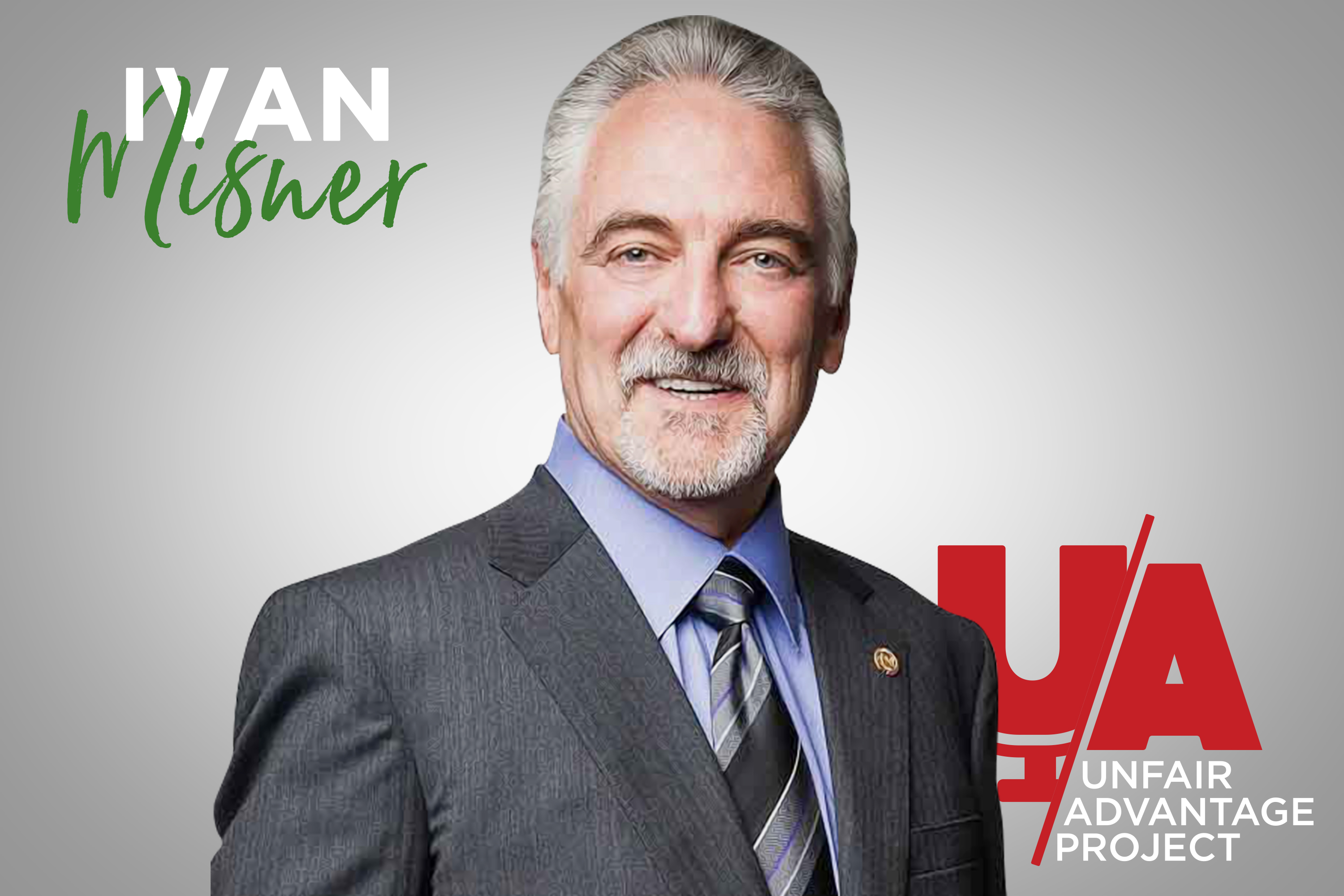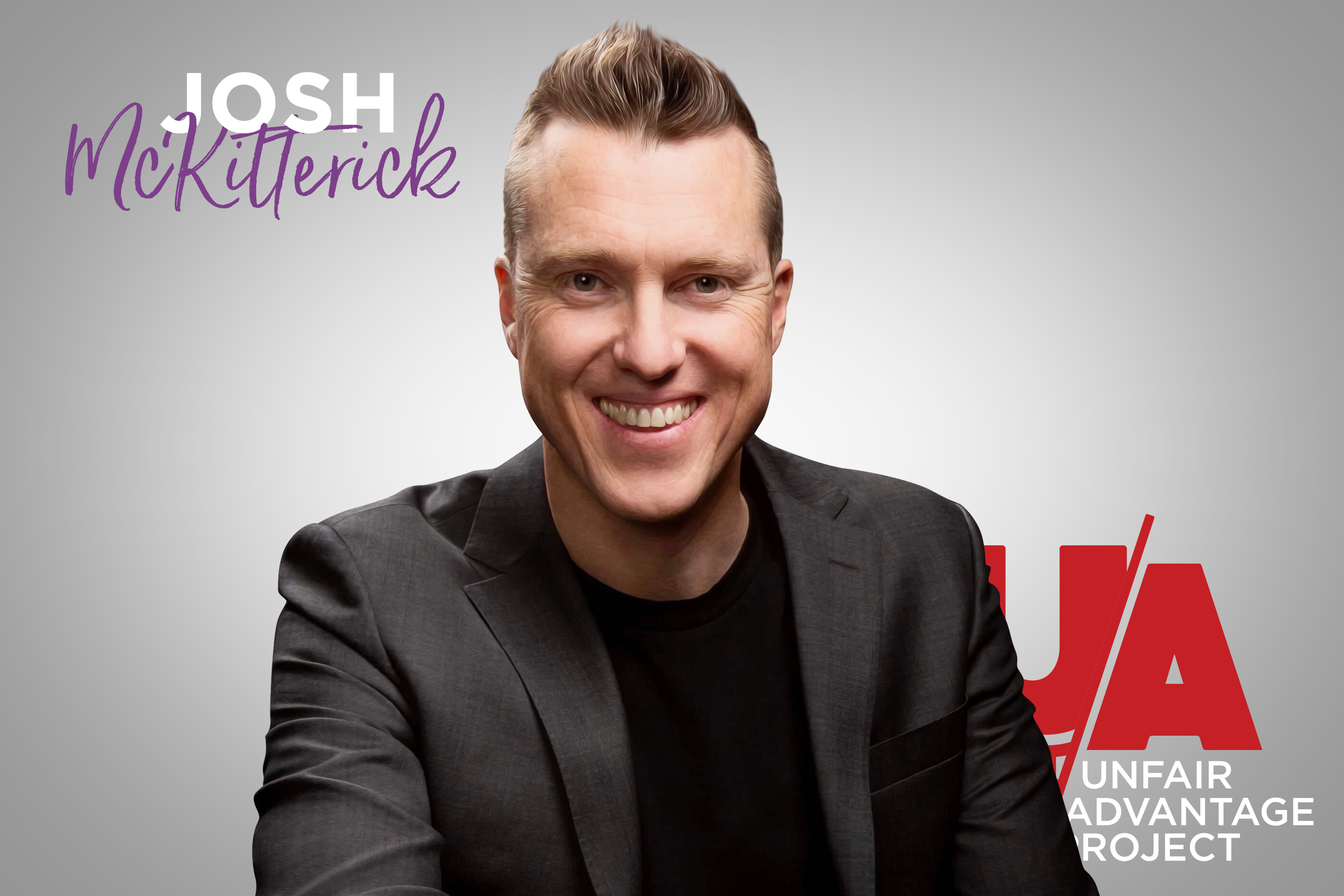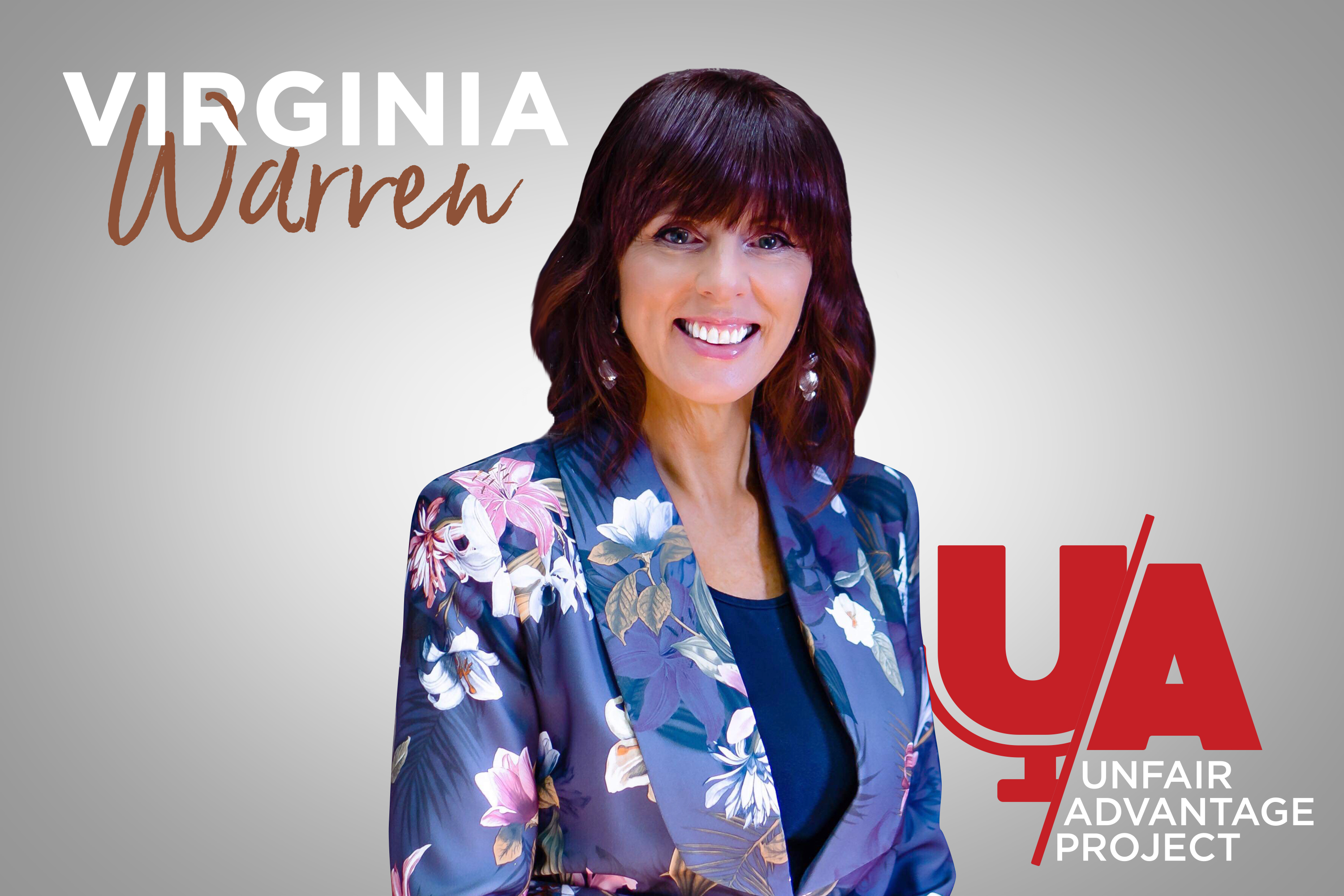Podcast: Play in new window | Download
Subscribe: Apple Podcasts | Google Podcasts | RSS
Show Notes:
How does Pippa value being in the police force? [02:08]
What were the adjustments Pippa had to deal with? [03:36]
Being able to adjust and think quickly when it matters. [05:11]
What made Pippa cry for three days? [05:42]
Pippa talks about her seeing things differently. [06:31]
What did Pippa miss after shifting into the business world? [07:45]
Why can’t you be reactive? [09:35]
Can emotions really affect work? [13:27]
What does it feel to live a vanilla-life? [15:30]
Pippa shares how she managed her moments of grief. [16:50]
How driven is Pippa? [21:59]
Pippa’s take on success. [22:43]
When is the best time to enjoy life? [24:51]
Pippa recalls the most successful speech so far you have delivered. [27:52]
How minority groups see themselves? [29:30]
Why Pippa value morals and values so much? [39:55]
Follow Pippa Hanson:
Website – https://bit.ly/2AkY7Ya
Facebook – https://bit.ly/2J8uBYt
LinkedIn – https://bit.ly/2PhJ0XA
Narrator: Welcome to the Unfair Advantage Project – unique perspectives, practical insights and unexpected discoveries directly focused on giving you the unfair advantage. Introducing your hosts Nadia Hughes and Terence Toh.
Terence: Welcome to the Unfair Advantage Project. I’m Terence Toh, founder and managing director of StrategiQ Corporation. I’ll be one of your hosts today. And we’ve got Nadia Hughes here. Good morning Nadia.
Nadia: Good morning Terence. Yes, it’s Nadia and I’m from Smart Business Solutions.
Terence: And Nadia will be hosting as well.
Nadia: Yes!
Terence: I guess you can call us co-hosts.
Nadia: Yeah, we are co-hosts.
Terence: Co-hosts. And today we join Pippa Hanson – an entrepreneur, a keynote speaker. She spent 18 years in police force and then she switched over and founded a business called The Sports Injury Clinic.
Pippa: Yes, that’s right.
Terence: Which is going quite successfully now. So, good morning Pippa.
Pippa: Thanks for having me.
Terence: Thanks for being here. And today we’re going to just kind of run through a little bit about your experience in business. And maybe one of the things straight off that kind of interest me as soon as I know that you’ve been in the police force
and I think you mentioned that you switched, there was this kind of time switching between the police force and the business side of things. And I guess to begin with, I’m kind of interested in how that all worked for you.
Pippa: Yeah, it was interesting. My passion is definitely people. So, policing definitely being out there, looking after people and protecting people. And my business is health care and we have staff, so I love looking after staff and in health care, physio and allied health we’re obviously looking after the public. So, the overarching switch was quite easy I suppose because it was all about still taking care of people. But the difficult part or challenging part that I really had to switch from pretty quickly was as a 20-year-old, handed a fair amount of power and authority overnight. When I went into a private business I then had to learn that leadership was about trust and building relationships and that power wasn’t just automatic. And it was interesting, police force, the people I deal with, that I worked with were very black and white, very… the way you could speak to each other, the way you just worked in teams together whereas health professionals are very, very caring people wear their hearts on their sleeve. Almost that emotional type of people so that was a real big learning lesson.
Nadia: It would be a huge adjustment going from colorblind to their awful palette of colors, rainbow. And my question to you, the biggest like can recall the first challenge you faced when you were because what I assumed would happen you would be given order in your usual way and suddenly you will get resentment or strange response. Was it happening?
Pippa: In business?
Nadia: Yes.
Pippa: It probably… It just took me a little bit to adjust. And I’m very good at analysing myself. I think I had worked in policing with some very poor leaders and some very good leaders and I like continuous improvement. I thrive on going personal development whether it’s unicourses or attending seminars or… I love that, so I take the best of everything I learn, and I try and use that myself and very quickly I just learned that I had to speak in a different way, a more gentle way. I had to send emails that, how are you? This is what you’re after.
Nadia: That’s where I want you to take that back. You learn it in a hard way. You obviously done a few orders when it didn’t go down well or because you said I had to learn.
Pippa: I was probably just aware, I can’t isolate a particular incident, but I was probably aware of the reaction, of how I was asking things to be done. I don’t ever think I’ve been a forceful leader. I’ve never been a black or white my way the hard way leader. So, it wasn’t that much of a switch. But I suppose the power meant in terms of dealing with the public in a situation probably not dealing with co-workers. Yeah.
Nadia: Okay. And what I hear also is that your success you probably will attribute to also your ability to adapt. One, you take some arsenal from one line of work and bring it to another but at the same time adapting, adjusting, takes the best and put it into new environment. What are the best tools you brought from police force to business?
Pippa: Yeah. Definitely the ability to adjust and think quickly. Policing wise you would turn up to incidents scenes, crime scenes, horrific incidents that you just had to be able to switch on, stay calm, communicate effectively and look after the situation. And I think learning those things are learning how to control your emotions at the time. I walked into some things that were horrific and at the time you’re holding it altogether. But then I’ve cried for three days because of how hard it was. And I think that you can use that experience in controlling your emotions in business. I’m still human. I love what I do but I know that some people look to me to be the leader and to make sure everything’s okay and running well and make sure their lives are well.
Nadia: How we are adjusting we think, would assume these horrific scenes you would walk into, would it make you desensitized to less traumatic people where you’re coming to their normal world, although I suppose not a world of crime, and people a little bit more softer and they’re more affected with lighter things? How did you find this adjustment to take people seriously with their problems after seeing horrors?
Pippa: I’m well aware that the world I’ve seen is not the world everyone else sees. And there were even parenting decisions that I made along the way that I know were affected, were the result of things I’d seen. So, whose house my children could stay and where they could go on their own? And there would be times and they’d say I hate the fact that you’re in the police force because they weren’t allowed to stay in someone’s house because we hadn’t met the parents. Whereas other children were allowed to stay in our house even though we’d never met the parents.
Nadia: Because you’re just cops so it’s okay for the kids to stay. That’s a very safe house.
Pippa: Yeah. So, I’ve certainly seen things that do impact on how I behave, and I made a joke earlier today saying I’ve come into an environment today I’m sassing out where I am. No one knows where I am. I’ve walked in with the two of you. But I’m always sassing out my environments and you don’t lose that.
Nadia: Interesting. So, my question is when you’re going through this adapting your work environment now you’re in the business, you’ve first think what really, really shocked you in soft environment? Let’s put it this way because you had to make it work, you have to make it commercial. And did you have these regrets of leaving police force or not?
Pippa: Not regrets. What I miss is the thrill of the chase and not knowing what’s going to happen every day when you turn up. But what I love is the opportunity to empower other people and actually make a difference in other people’s lives in a different way.
Nadia: So, how do you empower people?
Pippa: Help them with ongoing formal education but also help them with personal development. And I think a lot of things that I have experience in the police force as you said before, their issues or their problems are nothing really. They just need the guidance, encouragement, support to be a better version of themselves and have someone believe in them.
Nadia: And you also said that what you did bring there as the best tool you have brought from police force it’s your ability to stay calm and collected. Do you have any particular technique? Because in the business, and me being in the business, I know there are so many situations where it’s so stressful. I have sometimes sweat pouring out of my palms when I get, I tell you typical would this happening ATO would call and they would just simply blab the client down some horrific things saying they’re not in the line of law something that’s quite often happens to selfmanaged super funds and things like that. You’re caught off guard because they’re telling something. They put you in a position to defend the client when you are not ready yet, you haven’t looked at the details and everything, and you have this reaction. I also can relate to this. You have to stay calm. Sometimes I put the phone down and have to go on the street to go for a quick walk to put my head in the calmer space and then come back and start going through the evidence on file, everything is fine and present it to auditors. How do you find this place of calm?
Pippa: I’m not reactive anyway and I think that’s definitely a skill I learnt in policing. You can’t be reactive. You have to turn up to a scene and you have to be
analysing everything that you see and hear and smell and unlock that in the workplace. So, other people’s emotions don’t upset me. It’s something that has this problem that can be solved. So, I basically look at everything like a problem that has a solution. It just does not eat at me at all when I look at it that way.
Terence: Love to go a little bit deeper on that because you say you’re not reactive. But there’s got to be more than just making the decision not to be reactive because just making the decision not to be reactive, it’s got to go a little bit deeper than that. Can you tell us a little bit about that?
Pippa: You could start with something as simple as a complaint and whether that’s a staff member complaining about something or a client complaining about something, it is their perception of what they’ve seen. So, what’s the other side of that? So, there’s no point reacting. It’s about getting all the information like a mini investigation. Like you have just said that you do Nadia, looking at both sides and putting them together. And you know what, sometimes the way the situation is that two people have actually seen it completely different. Witnesses are not always accurate in what they’ve seen under stress and pressure. And when other people are facing emotional challenges, the way they perceive a situation can be, they can both actually be right. It’s for me to then problem solved that and make both sides happy or make one person happy and resolve the issue that got them into that state whether they are the staff member or the client.
Terence: What I would take out of that is it kind of comes down a lot to empathy. And maybe you’re seeing something from maybe someone else’s point of view as well. And in the case where you are helping two people to resolve something there you’re helping them to see each other’s point of view. Is that kind of right?
Pippa: Yeah. And I don’t think they’ll always see each other’s point of view sometimes. So, it’s just trying to explain how a situation happened and say yep this side and your side and the other side. But… And I can understand why you’ve both perceived differently. How can we do it differently next time or how can we make sure that you don’t feel this way next time? And I think it is people not always able to control their own emotions.
Nadia: What I hear, I’m actually on contrary to Terence. I hear different thing. I hear that the quicker you will get out of the emotional turmoil and go to the very rational factual gathering the better you will be able to handle the situation. However, understanding where you’re going is later on because they know that points you identify, this comes from police training. You do have to be disconnected from your emotions while you’re in line of work. What also happens to police, they burn out. They have post-traumatic disorders, and this is why you cried for three
days after seeing things this is because you had to put aside emotions. Modern business model is actually asking you to connect emotions with the rational side. And then when you deal with people, be this emotionally intelligent person. So, what you had to do is, sorry if I’m putting words in your mouth but what you had to do, you had to connect those two back, reconnect them. While in line of police you have to completely be separate almost having a splitting personality disorder. People who can heal and people who can process and rationalize.
Pippa: Yeah. They’re definitely, I’ll tell you the scene I was talking about. So, I walked into a house at the same time as ambulance and a little baby had drowned in the bath and it literally just happened. So, the ambulance was there to see if I could actually save the baby it was that sort of fresh. But there are other little children in the house none older than about seven. They were aware of the situation and they were coming to us saying please don’t let my baby brother die. Please save him, here’s his favourite teddy. Here’s a photo of him. The baby died. So, here we are meant to be policemen to be able to save everyone and have a good outcome. The time you’re in control and the situation is you can’t show your emotions, you’ve got to be the one that is looking after. But a day later the impact of it at that point in time because so close it’s not really considered as posttraumatic stress in the true sense, it’s that the emotion was allowed to come out a day later two days later in the right environment at home with family, with friends.
Nadia: Simple controlled environment.
Pippa: Yeah. but. And it’s not suppressed, it’s dealt with and you can move on. And I completely agree with the workplace that you can’t be seen as a robot. And that was probably challenging for me because I don’t like showing my emotions externally because I do like to feel like I’m this, I’m the one there for everyone. I’m the one that if they’re having a bad day, if they’re having marriage problems, death in their families, sick parent, sick children that they can come to me and talk to me. And it can be difficult sometimes to show that you’re still human because it’s not natural for me to want to cry in front of people or yeah. So, it is…
Nadia: Funny enough they’ve done studies and they say that people, especially women, why they are successful in business because sometimes they do show emotions and sometimes they do cry. And women who are capable of crying in front of other people are more successful than the ones who control themselves. It came as a surprise and that this is exactly the thing is, I was wondering. It was a challenge for you.
Pippa: Yeah.
Nadia: It was.
Pippa: Yeah.
Nadia: And you are still learning and that hence, you did put a lot of accent on to emotional intelligence part of you. And you did say that your business will grow, it’s in the preliminary discussion that it’s all about growing yourself personally. So, I assume you Pippa Hanson was growing emotional intelligence and an ability to connect people through acknowledging your own emotions even though it’s hard for you.
Pippa: Yeah. Yeah. And I think I’ve led a very vanilla life. Like the things…
Nadia: How could we live a vanilla life? I I’m sorry. What do I have to buy?
Pippa: I mean I kind of grew up in a happy household, I have parents that are still married, I have my grandparents until recently death around me. So in terms of having to really express negative or what would be perceived as negative emotions and I cry when I watch a movie, you know or a sad ad comes on tally that’s fine but I haven’t had this turmoil life. It has been something I watched in policing not what I’ve had to experience. So, yeah definitely I’ve had to let myself be a bit more human in front of people and not trying to be this solid rock.
Nadia: As far as your personal development when you start running a business, Am I allowed to ask your big support and but also your… the said story was about your partnership.
Pippa: Yes.
Nadia: There’s Michelle. It was there obviously very public story and you have shared with insights what it’s like to have a very supportive partner initially and being so sick for so long. If you don’t mind, again I’m asking permission you don’t have to but if you don’t mind telling us about having a business partner what it’s like. Now you don’t have a business partner. And before, with and after what it’s like.
Pippa: So, having a business partner was fantastic. It was a fairytale meeting. We weren’t longtime friends. My husband did Iron Man training with her and it was over a swim one day when they had a discussion. A month later we bought a property and we’re developing it. We had different roles, so we didn’t step on each other’s toes so to speak. We just trusted each other. I certainly wasn’t a physio. She ran a business because she could she give everyone the day off with. She gives
everything away. She just had beautiful qualities of, not that suited running a business. So, it worked really well. And we talked or worked side by side every day. So, one of my children was three when we started the business, the other two were born after the business. She was well and truly part of the family. And being able to run ideas or suggestions, bounce off each other was fantastic. And jumping ahead, I really miss that. and if I needed to lean on her or she needed to lean on me outside of family that was probably the only person that I would lean on. So, it’s been a huge loss and I have noticed that particularly in the last, well it’s been a, it’s just gone 18 months. There are times that come up that I’m going to pick up the phone or I go to type an email because she was the one I could bounce things off and lean on when I was struggling. And when I say struggling, people staff live lives. They’re part of life, they have their own things going on every day. And sometimes you can’t fix what they’re going through so it does impact because you’re trying to do the right thing and give them the best support you can, so I could lean on her. So, I well and truly miss not having her and we had a good business partnership so… You hear of business partnerships that break down because people argue and things, it was a great partnership.
Nadia: And what it was like to keep it all together while going through basically you’re being so not well?
Pippa: It was a struggle. And I definitely hid my emotions from the team. I would pull up at the front sometimes, sit in the car and cry and then pull myself together to go inside and be the strong one because I felt that they were also feeling one loss and sad, particularly those we’ve got quite a few people that have worked for us for over 10 years. So, they’ve been there since the start and so they were feeling the sadness and… But also, I was worried for people’s vulnerability of did they think they were still going to have a job. What was the business going to look like down the track? And… So, there was very much no real emotion shown over that four-year period. And on the day of the funeral, I absolutely was a mess of people at work I’d never ever seen my family never see me like that. I’ve cried the whole funeral, I cried for hours. It was the buildup of the four years and it was horrid. I hated it because I was not in control, but I know it was healthy. I know it was, it was almost like okay you’ve held it together a bit like policing. You held it together when you need to. But now it’s the appropriate time. But I was… I hated it and it really didn’t like showing that, but I just had no control over it.
Nadia: And doing this for years, what did you learn about yourself? Because you were like you said you had pretty vanilla life and suddenly over you have to challenge, have to be facing an extraordinary situation. I wouldn’t call it something light.
Pippa: I’ve lost two grandparents, but I was young when they died, and you sort of expect elderly people to die. So, although you get upset when you lose grandparents, this was the closest person to me that I’ve ever lost. It was trauma and grief that I’ve probably watch other people go through being in policing and had to help with situations where there’s been car accidents and people have died or there’s been suicides and I’ve had to go and deliver death messages. And I’ve seen the other side of it, I’d never experienced it. And certainly, I’ve probably now look at life a bit more preciously. As a family we live our lives a bit different, a bit more in the moment and a bit more grateful for what we have.
Nadia: Well I see you down beach baulks with your staff and it tells me a lot about what kind of relationship you guys have in your team. It’s really nice. So, you are family and staff not for you just that somebody you turn up to work to. And what my next question unless Terence wants to interrupt our discussion.
Terence: The question I’ve got out of that how has that affected the way that your maybe you’re approaching business and your personal life? Like how specifically? What have you really changed as a result of that experience?
Pippa: I have always been very driven. So, I put my mind to something and it will always succeed. It’s just like I went through school very easily, played sport very easily. So, I’ve always just go okay I’m going to do this and it will be successful. And you just keep chasing things like that and keep chasing success I suppose. And the real change has been enjoying more of life. Still the thrill of chasing success which in whatever that looks like. It doesn’t always have to be about money. But definitely slowing down a bit more in life and…
Terence: What does success look like to you?
Pippa: Success for me is the balance of business and life. So, I have that. I’m involved with my children and that’s probably something I couldn’t have had full time in the police force. So, I’m team manager for football and I’m involved in the netball and whatever else I can be involved in the kids’ lives. That is my success – having the business, providing further amazing team we have, trying to provide for them what I want in life. So, some of our staff now do have children and want to be there for various school holidays or assemblies or Father’s Day breakfasts. They are the things I want and what I think is success when you can actually balance both of those parts of life.
Terence: Really interesting for me because I’ve spent the last probably five years really discovering what success meant to me. And you mention that kind of success doesn’t have to be money. And for a long time, success to me just meant money.
Right? And then I kind of I got enough money to really consider myself successful in what I was doing that sort of business and I was kind of didn’t really have to do a lot for a while. And then I realised that wasn’t success at all. And so actually the realisation that I came to what success for me, and it’s part of by the way that I try to help my clients these days, at the center of everything that we do is trying to build a business that generates more freedom. And so, I went from money to freedom. And that’s kind of similar. I mean when you say that balancing that life and business, does that kind of relate to freedom for you?
Pippa: Yeah definitely. And it doesn’t mean that I sit around that I don’t have a lot of spare time but that’s me. If I get a gap I fill it with something else. I love hobbies, I love family time, catching up with friends. I think when you’re on this rollercoaster of just trying to chase financial success, a lot of those other things of what you past life by. We end up getting to 60 when we should be retiring, and we haven’t actually enjoyed life or lived life. These are the years when we’re at our best health most of us and active and able to move and able to have that freedom. We need to enjoy it now, not when we’re 60 or 70 and then have to face different challenges of life.
Terence: I don’t know where, it is not really a quote, but someone, and I can’t remember who told me recently. But apparently Seth Godin, somebody saw Seth Godin sitting there with his laptop and went up to me said that I’m feel sorry for you that you have to take your laptop on a holiday. And he said around it said I feel sorry for you that you have to go on holidays. Because that’s his life. His life is just sitting on laptop, being where he wants to be and doing the stuff that he actually wants to do.
Pippa: Yeah. I don’t agree with that because we definitely take our laptops on holidays and stuff because I love what I do. I absolutely love going to work every day. It’s what gets me up in the morning. I love it. And when I travel or have time off or I’m still working but it’s my balance and it works for me and going back to the kids, I think the big thing for me with them is if I’m not in their lives now than when I’m ready to have them in my life they won’t be ready. They won’t want me because I’ve never been in their lives to start with. So…
Nadia: That’s why this has been happening, the pattern for generations. And now that’s where these phenomena come our grandchildren are precious.
Pippa: Yes.
Nadia: Because we missed out on children, let’s just embrace grandchildren and spoil them which doesn’t work for our children anyway. This is where it’s coming.
And now it seems I’m glad to hear it from so many other business owners the same concept of re-connection with your next generation not with generation after next. It’s a really nice and refreshing because this is where all our problems and things started. I had a lot of also mindset coaching myself and growing. And one thing I learned that all our problems and everything stems from childhood – the traumas that were done to us by our actual parents. And the lack of time or disregard for our emotions led us to leave these dysfunctional lives. And now this has been addressed for the first time. And it’s a lot of in publicity we are raising very soft children. Look how we will raise. That’s not a good answer. Our children are now more conscious. They are better people than we are. I believe in it just because we are giving them what we missed out on. And that’s… I think it’s a very positive change in the human kind. Correct me if I’m wrong. And when I went recently to trip to developing country I would consider it’s Thailand, Philippines and Vietnam. You see they disengage their children, they’re working. Grandparents looking after them. So, we went to Australia being first world country very likely to be in this new spin of the world and it’s a privilege. I can see that. What I would like to ask you now you told us that you cannot speak out. What was the most successful speech so far you have delivered?
Pippa: I actually did one at a company, that’s an international company and they have the majority of men in their workplace. So, they have a division that they call women in the workplace and it’s to try and connect the women and make them not feel so isolated. It’s a technology company so the majority are men that work there. And I was asked to come in and speak about working in a male-dominated workplace because in the police force, it was mainly male. And particularly when I went into the detective’s offices, only a couple of us in the office to start with. So, that was one it was on. We had slides and I was ready and I was prepared and then everyone sat down, and I was at the front and there was men in the room. And I like Oh my goodness. What it was, was they were a minority because they were from different countries o they weren’t white males. So, they were actually in the room as part of working as the minority group. The outcome was fantastic because I get really annoyed when, whether it’s women whether it’s minority groups, try and blame. There are times when it’s well and truly justified, don’t get me wrong, but when they try and blame being a woman for an outcome or they try and blame being a… Sometimes it’s just the way that you react to a situation. It’s nothing to do with you male or female. And the outcome of that day was fantastic. The women and the men at the end of the day came and said I need to look at myself, and how I react, and how I behave, and how I respond and not take everything as a personal attack.
Nadia: So, basically you were telling them toughen up. And…
Pippa: I was being very nice about it.
Nadia: Well. But they just go to the core of it and stop using the fact that you are female or minority or something like that. Because there is such a norm and it exist now it’s reverse racism as well when minority now tried to dictate to majority what to do because of using the fact that they’re the minority. Or for example a red- headed people never took offence of being called red-haired rangas and all this stuff but try to call black black. That’s it there’s hell to pay. So, this type of thing is happening. I can talk about any minority because I’m a minority. Nadia Hughes it’s just very strange that it’s very Russian last name. What I like about these because we are so politically correct that it’s we disabled ourselves from doing a lot of things. We cannot talk anymore straight. We just have to be so careful not to step on anybody. It’s disability. Words are now prohibited. Any reference to color of the skin or something cannot walk – outrage. It just becoming really hard to breathe for me.
Pippa: Even the nursery rhymes are changing at the schools.
Nadia: Yeah. Well, don’t start here on Christmas day.
Terence: So, what tools would you give someone to deal with that?
Pippa: It’s having a… being able to look at yourself externally. And internally I think about your emotions and how you control the situation but are being able to look at yourself from an external perspective and just look at a situation. Don’t immediately assume that something has happened because of male, female, minority group. Look at the situation and deal with the situation.
Nadia: But it feels so easy to fall into this. Well it’s happening because I’m female. They talk to me this way because of their sex. It’s ability not to take responsibility. And because you have an excuse and that’s what I think it’s an opportunistic.
Pippa: Yeah, it can be used. But it also can be quite debilitating. So, people aren’t always trying to get out of a situation, but they will use it as an excuse not to do something. But it stops them growing as a person as well if they feel that they are being held down because they’re female or because… There’s a great book called Lean In and it talks about women in a boardroom table. There’s not enough seats so the women are the ones that sit back, and the men will actually just take the seats no matter what. Or you’re applying for a job and you see the key criteria. There’s 10 points on it and women says I’ve only got nine out of ten, I won’t apply, A man says I’ve got one of those, I’ll give it a go. And I think you know women and
other minority groups sometimes can actually self-stifle their personal growth by assuming that that will stop them.
Nadia: Where does it come from? Why women and why are minority this way? What has been bred than them? What is different? Why men think with one point is okay to turn up and a woman with nine points will feel hesitant?
Pippa: We as women are just more self-critical and don’t have the confidence that men have.
Nadia: Why are we this way? What’s happened to us?
Pippa: So, it probably has come from the fact that women used to stay at home, and weren’t educated, and raised the children, and men have been the ones to provide and go to work and be educated.
Nadia: So basically, we said this sort of archaic way of thinking still embedded in us. But times changed, it’s all different now. Men actually expect a woman to earn money now. And nobody ever expected to stay home look after children. They men quite actively involved. I was very fortunate my kids were born and my husband at the time was really involved with babies and everything, so I never felt this way as a time as a woman, held back in society because you move on, you adjust, and some people have chosen or is it is something else there.
Pippa: It’s probably a combination because you get or whether you male or female you get people that just don’t have as much confidence. So, is that their environment that we talked before about how you learn things as a child is that parents not providing enough positivity. Or some people are just born that way, nature nurture.
Nadia: And you’re helping those people. If you see this type of traits in your staff, you are having.
Pippa: Oh, that’s what I absolutely love, thrives on it.
Terence: I guess I can kind of, and it’s not the minority group by any chance, by any stretch but I’ve got a teenage daughter. And I think that she sometimes feels like she’s in a minority group, right? She feels like she’s getting home. If I asked her to do something, she would get to the point where she’d say oh you’re picking on me type of thing because you ask me to do that. And she says taking things your own way. So, I gave her a couple of tools to deal with it. The first time and I’m pretty sure I heard this from Tony Robbins is just be grateful. So, the first thing I
made her do is that when she… when something would happen she’d be upset about. She’d be saying well this person doesn’t like me or you don’t like me because you’re telling me to do stuff. Whatever the case is, I’ll be grateful. Think of three things that you can be grateful for today. And I found that I actually started to shift her mindset. And I think Tony Robbins says that you can’t be angry when you’re grateful. Okay? So, it got rid of the anger side of things. And the other thing that I said to her is own it because… you know, and I don’t know if this directly relates to minority groups that’s for sure, but if something is happening at least own the fact that you’ve got something to do with it. You are part of the situation no matter what. So, I guess there probably two really simple tools that I kind of gave her and it’s really helping her. I guess she’s new to the teenage thing and I’m new to the teenage daughter thing. I’ve had teenage sons who are now no longer teenagers, they manage to get through. But… so this process is kind of new to us but that there are a couple of really simple tools. And I think anyone can use those because they’re things that I use myself daily. If I get angry about stuff, I go to hey what can I actually be grateful for. And it just changes your whole perception of the situation.
Pippa: My children get a little bit annoyed when I tell them to stop letting other people’s behaviours and attitudes upset, make, upset their lives. So, if they start complaining they just get, they know, they almost start repeating it as I’m about to say don’t let other people’s behaviours…
Nadia: I recently learn from my friend, she’s in police force as we have spoken before. We have this discussion about children. Children do tend to pay attention to another people’s opinion and she said there is a phrase you can… you always should be using with them and I said what is this? She basically said to me, she uses it a lot as well and that helps her big deal. Your opinion about me is really none of my business. And that’s it. Then she said then stop. Silence is actually very paralyzing, nobody can deal with it. So, she taught me to draw a pause as well after that. And it was really dramatic effect on other people and I just think I have to enforce it a bit more.
Pippa: Yeah. It’s not the buy in is it? It’s just not buying into that you can’t, you’re right. You can’t be angry and happy at the same time. It’s whatever one you’re focusing on all the time and sometimes it’s okay to focus on anger and you need to just deal with it and get rid of it. But if you continue to focus on anger like continue to focus on being sad, that’s what will maintain.
Nadia: Well, it’s we have a story it’s Wolves. There are two wolves. I think it’s one of the monks telling that. And one wolf called Anger and another wolf was called
Agnes. They were two puppy wolves. Which one you will feed will grow. That’s basically very simple.
Terence: I think there’s actually, there’s some science behind it now in terms of…
Nadia: Feeding purpose.
Terence: In terms of the mind. If you feed positivity, your mind attracts what… you tend to attract more positivity. If you’re consistently feeding negative thoughts and emotions, that’s what you generate, that’s what you create for yourself.
Nadia: Well, I think they went to a great extent of breaking it up to metaphysical level and showing even how it attract certain crystal shape and everything. They showed it on the water in Japan. And the metaphysics here they’re showing on as a way the certain particles in physical world start lining up in these directions. And they were able to this drawdown science go all into as a tyrics. What used to be a science for hippies is now it becomes part of our business and world reality. We have to understand and acknowledge how it works.
Pippa: I think there’s such a grand emotional flexibility and inflexibility. And that can really control how people behave, respond, act.
Nadia: Exactly. We come to the point of when we started. It’s your adaptability was part of your key success points. And another thing when I was doing months at college, I was doing it with Nick Hughes. We are not related. Yet, in sense she’s a very strong coach and that’s my relationship to her. What I did like about, she was very strong, and she was boot camp style. One thing I straight through I learned about that she said only flexible mind will expand.
Pippa: Yeah.
Nadia: To expand and grow as a business owner and grow as a person, you have to be flexible. And she taught me to you can be something because people believe they have these increstinated beliefs and everything. They call it principles. But if you can’t shift your principle 280 degrees and assume that it’s also can be correct, you won’t be able to move on shift from there.
Pippa: No.
Nadia: It was the most invaluable thing I’ve learned from her. I just I really treasure this lesson.
Terence: Alright. I guess we’ve gone through a bit of stuff here. I’m kind of interested in what’s the… maybe the most valuable thing that you’ve learnt through your journey? Going through the police force, then going through a business startup, then losing your partner in that business, and now trying to… I guess trying to it sounds like you’re getting a much better idea of what success means to you. So, what’s the most valuable thing you kind of learn that you can share with our listener that would maybe help to give them an unfair advantage?
Pippa: I think always being true to who you are, and your morals and values because there can be challenge in any environment – work environment, sports environment, family and friends, environment. But if you’re true to your morals, values, beliefs and spend time growing yourself mentally as a person, so the emotional intelligence, the emotional flexibility that is the unfair advantage.
Terence: I like that.
Nadia: Yes.
Terence: I built my own quote which is similar to that I think.
Nadia: What is your quote?
Terence: What is my quote?
Nadia: It’s your chance.
Terence: Be authentic about who you are or risk becoming someone else.
Pippa: And you can’t be a fraud forever.
Terence: No, exactly. Exactly right. Yeah. All right. Well thanks for joining us. How can our listener connect with you?
Pippa: So, I can be reached at The Sports Injury Clinic or pippahanson.com.au.
Terence: And that’s spelled pippahanson.com.au.
Pippa: Yeah.
Terence: Great. All right, thanks a lot for joining us today.
Nadia: Thank you very much.
Pippa: Thanks for having me.
Narrator: Thanks for listening to the Unfair Advantage Project. For more curated resources, visit us at unfairadvantageproject.com.
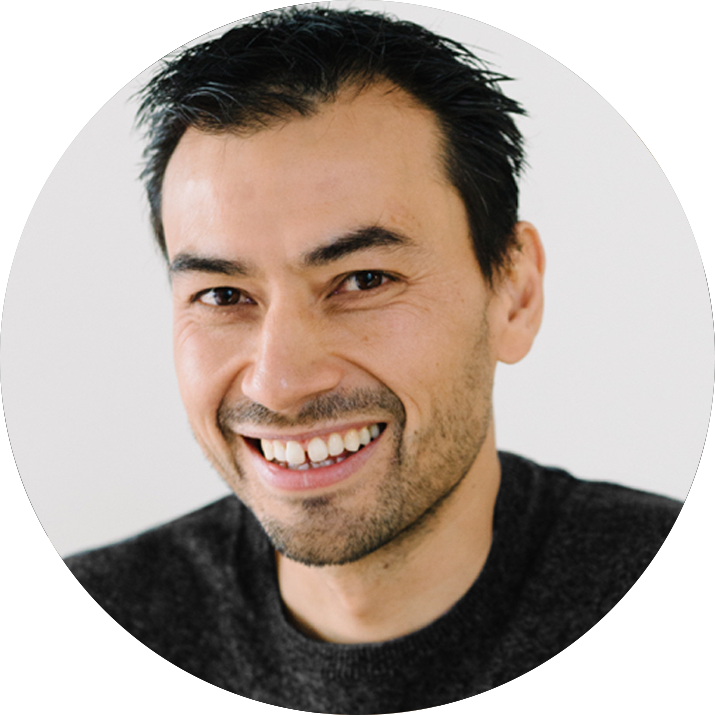 TERENCE TOH
TERENCE TOH
About Us
The Business Coach.
Terence is the founder and Managing Director of StrategiQ Corporation, a serial entrepreneur and experienced business operator who has founded, bought, grown and sold several … see more

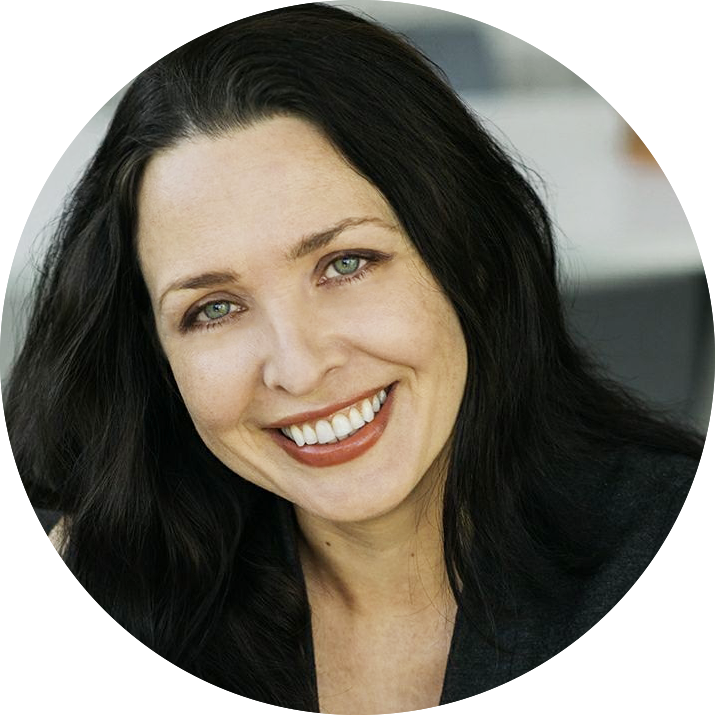 NADIA HUGHES
NADIA HUGHES
About Us
The Super Nerd.
Are you passionate about the ins and outs out of taxation legislation? With Nadia by your side, you don’t need to be. Accounting and financial planning isn’t just her … see more


